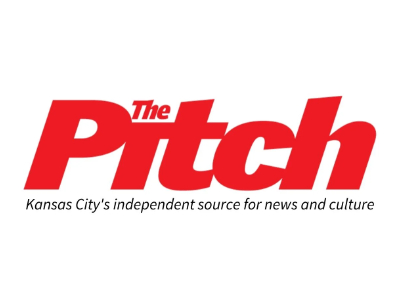Missouri Gov. Mike Parson during his State of the State address on Jan. 19, 2022 (photo by Tim Bommel/Missouri House Communications).
From the $8,000 set aside so the Lone Jack Police Department could buy rifles to $46 million for an allied health building at St. Louis Community College, Gov. Mike Parson’s veto ax fell heavily on earmarked spending as he finished work on the coming year’s Missouri budget.
Parson announced his actions late Friday on the $51.8 billion budget approved by lawmakers in May, with only eight hours left before the start of the new fiscal year. In all, he made 201 vetoes, cutting $555.3 million by reducing some lines but more often eliminating items entirely.
In almost every veto, Parson cited the need to maintain the state’s strong financial position. There is a tax cut bill that would reduce revenue by $300 million awaiting action, the vetoes state, and the overall budget increases annual general revenue spending by $200 million.
“I have vetoed this provision in an effort to help ensure the financial stability of Missouri beyond my administration and the current General Assembly,” Parson repeats numerous times in his veto messages.
Parson issued his vetoes despite a record state general revenue surplus. The state treasury was holding $5.9 billion in general revenue on May 31 – about $1 billion more than the expected surplus when the fiscal year ended Friday. And revenues, while well off the double-digit growth of past years, was $118 million more than estimated for the year through Thursday.
“Our revenues are up, businesses are growing and investing, and we maintain a historic revenue surplus, but we must not spend just for the sake of spending,” Parson said in a release detailing his budget actions.
On a few vetoes, Parson went beyond a general worry that the item was too expensive and must be cut to maintain the state’s fiscal health. He cut $8.5 million set aside for a no-interest loan to Magnitude 7 Metals for pollution controls on its Marston aluminum smelter in southeast Missouri.
The loan, Parson wrote, violates a Civil War-era provision of the constitution “which prohibits the lending of public credit to any private person, association, or corporation except under specific circumstances that do not exist here.”
Parson did approve several initiatives from lawmakers – expanding his $859 million plan for widening portions of Interstate 70 to a $2.8 billion plan for adding extra lanes across the state is the most notable one. He also approved $300 million to build a new psychiatric hospital in Kansas City and $171 million to boost pay for direct care providers in residential programs for people with developmental disabilities.
But items large and small fell by the wayside, including several in Springfield, the hometown of Senate Appropriations Committee Chairman Lincoln Hough. Parson cut out $28 million for improvements on a stretch of Interstate 44, $34 million for improvements to LeCompte Road, $12 million for a sports complex and $2 million for a not-for-profit science center.
“This is a local responsibility with minimal statewide impact,” Parson wrote about LeCompte Road, repeating a sentence that is included with dozens of other vetoes.
Hough issued a statement soon after Parson’s action, but did not address the cuts directly. The budget addresses major needs, Hough said, and was the result of weeks of negotiations within the General Assembly.
“I believe this final budget uses the surplus funding available from the federal government and the monies entrusted to us by the people of Missouri to aggressively improve our state while remaining fiscally responsible with an eye towards the future,” Hough said.
In announcing his budget cuts, Parson highlighted spending on transportation and infrastructure, with $379 million for road and bridge projects in the Missouri Department of Transportation’s rolling five-year program, $248 million for broadband deployment within the Statewide Transportation Improvement Program and $60 million for safety improvements at rail crossings.
However, his veto pen hit some road projects sought by lawmakers, with Parson often noting they were not in the MoDOT plan or identified as regional priorities.
Parson also said in his release that he was pleased with the education funding provided by lawmakers, including $233 million to fully fund school transportation, $70.8 million to boost core funding for colleges and universities and money to support minimum teacher pay of $38,000 statewide.
However, Parson cut $16.8 million for four-year universities that would be dependent on a new performance-based funding model. The model is not ready and does not need to be funded, he wrote.
Missouri doesn’t just have a large general revenue surplus. It also has almost $2 billion in other funds, mainly additional federal aid for state services like Medicaid tied to the COVID-19 pandemic, that can be spent like general revenue.
The growth in revenue in the current year, about $340 million, will be enough to trigger the next round of tax cuts in a bill passed last summer. For 2024, the top income tax rate in Missouri will fall to 4.8% from 4.95%.
The rate was 6% a decade ago.
Missouri Independent is part of States Newsroom, a network of news bureaus supported by grants and a coalition of donors as a 501c(3) public charity. Missouri Independent maintains editorial independence. Contact Editor Jason Hancock for questions: [email protected]. Follow Missouri Independent on Facebook and Twitter.


